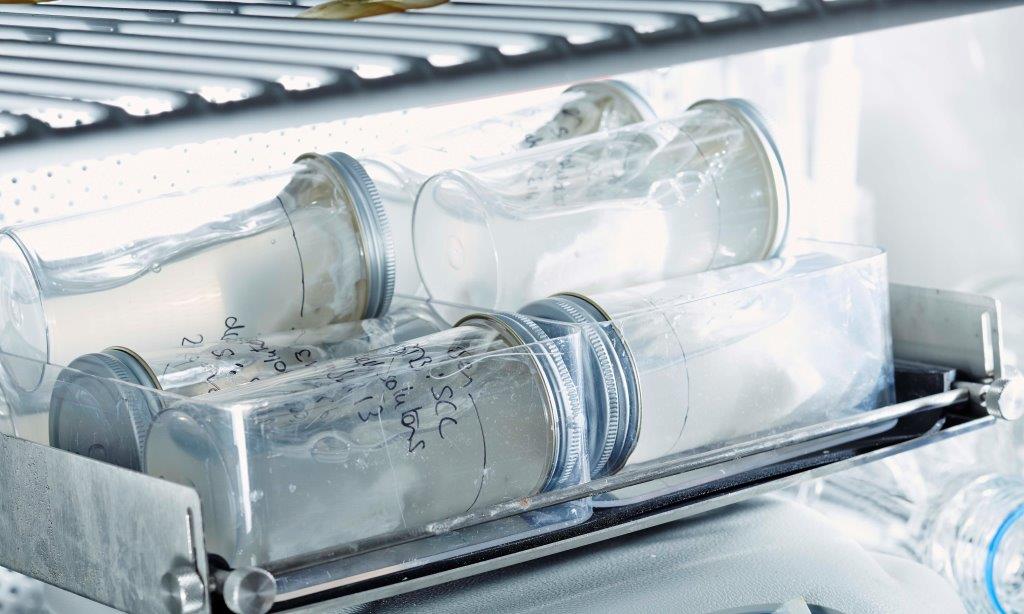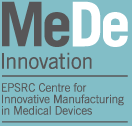Feasibility study funding winners announced: addressing key challenges in orthopaedic medical device design and manufacture

June 16, 2014
The EPSRC Centre for Innovative Manufacturing in Medical Devices (MeDe Innovation) is widening the national reach of its research by awarding feasibility study funding to shape the future direction of the Centre.
Eight of the UKs leading scientists, engineers and clinicians have been granted awards of £50k to identify the key challenges and questions that are not currently being addressed in orthopaedic medical device design and manufacture research.
The funds will allow investigators to develop the evidence and refine the research questions that will allow the development of full proposals for funding that can be submitted to existing national and global funding schemes.
A panel of leaders from industry and academia selected the winners from nominations put forward by over 20 universities and companies. The winners showed an exemplary fit with the research challenges being led by the Centre, offered significant potential and had support from industry.
Prof Alexander M. Seifalian & Dr Deepak M. Kalaskar
UCL Centre for Nanotechnology & Regenerative Medicine, Division of Surgery and Interventional Science, University College London.
Using novel POSS-nanocomposite biomaterial and stem cells, the investigators propose to improve spinal fusion by developing a lumbar fusion cage.
Lower-back pain, a common musculoskeletal disability, affects four in five adults during their life. It is considered a major health problem, as it imposes a great burden (e.g. high treatment costs) on the patients and on society. Fusion surgery carried out using these cages can greatly benefit patients by reducing the risks of disrupting larger area of tissues and nerves, as well as cutting the recovery time through minimally invasive procedures.
Current techniques and instruments for its treatment can be invasive and disruptive to the surrounding tissues – and are therefore moving towards minimally invasive techniques, which are less disruptive and traumatic.
Seifalian and the team using POSS-PCU have been awarded the Medical Futures Innovation Award (2007), Business Innovation Awards from UK Trade & Investment (UKTI) in the Life Sciences and Healthcare category (2009), and most recently the European Life Science Award for the most innovative product.
POSS-nanocomposite biomaterial are core to the next generation of surgical implants with highly successful outcomes in a number of pioneering projects. This led to the development of the world’s first synthetic trachea, lacrimal duct conduit, and bypass grafts (currently under clinical trial).
Dr Nicholas Dunne & Dr Helen McCarthy
Queen’s University Belfast
The investigators propose to test the viability of the synthesis and manufacture of a biomimetic interface to support the re-attachment of soft tissues to bone – a particular challenge when repairing the knee following injury. Cruciate ligament damage and meniscal tears to the knee are strongly associated with subsequent osteoarthritis, and is the second most common injury of the knee requiring surgical reconstruction.
The group’s approach using a combination of technologies is entirely unique. The success of the technology would enable a minimally invasive treatment for patients without the need for surgery.
The investigators have authored over 110 peer reviewed papers and leveraged over £4.4m of grant income in two years.
Dr Chaozong Liu, Prof Gordon Blunn, Mr Andrew Goldberg
Institute of Orthopaedic & Musculoskeletal Science, University College London
The investigators will study the mechanical stability and biological fixation of expandable biomimetic osteochondral scaffolds, which have potential to be used for the treatment of large full thickness osteochondral defects (OCDs) – currently impossible to treat without joint replacements.
Patients with OCD often suffer pain, loss of mobility and go on to require a total joint replacement. A total of 78,276 hip replacements and 83,426 knee replacements were carried out in England and Wales in 2010.
The feasibility study will further develop the groups’ novel integrated 3D printing technique to fabricate expandable biomimetic osteochondral scaffolds.
Success will lead to a one-step surgical procedure treatment of OCDs, improving the quality of life of OCD suffers by relieved them from pain and allowing them more mobility.
The research group is made up of a lecturer, professor, and consultant orthopaedic surgeon, all with a strong track record of successful research in interventions for the musculoskeletal system.

- July 2019
- February 2019
- December 2018
- November 2018
- October 2018
- August 2018
- July 2018
- June 2018
- May 2018
- April 2018
- March 2018
- February 2018
- January 2018
- December 2017
- November 2017
- October 2017
- September 2017
- August 2017
- June 2017
- May 2017
- March 2017
- February 2017
- January 2017
- November 2016
- October 2016
- September 2016
- July 2016
- June 2016
- May 2016
- April 2016
- March 2016
- February 2016
- January 2016
- December 2015
- November 2015
- September 2015
- July 2015
- June 2015
- May 2015
- April 2015
- March 2015
- February 2015
- January 2015
- December 2014
- November 2014
- October 2014
- September 2014
- August 2014
- July 2014
- June 2014
- April 2014
- March 2014
- February 2014
- January 2014
- December 2013
- October 2013
- September 2013
- February 2013
